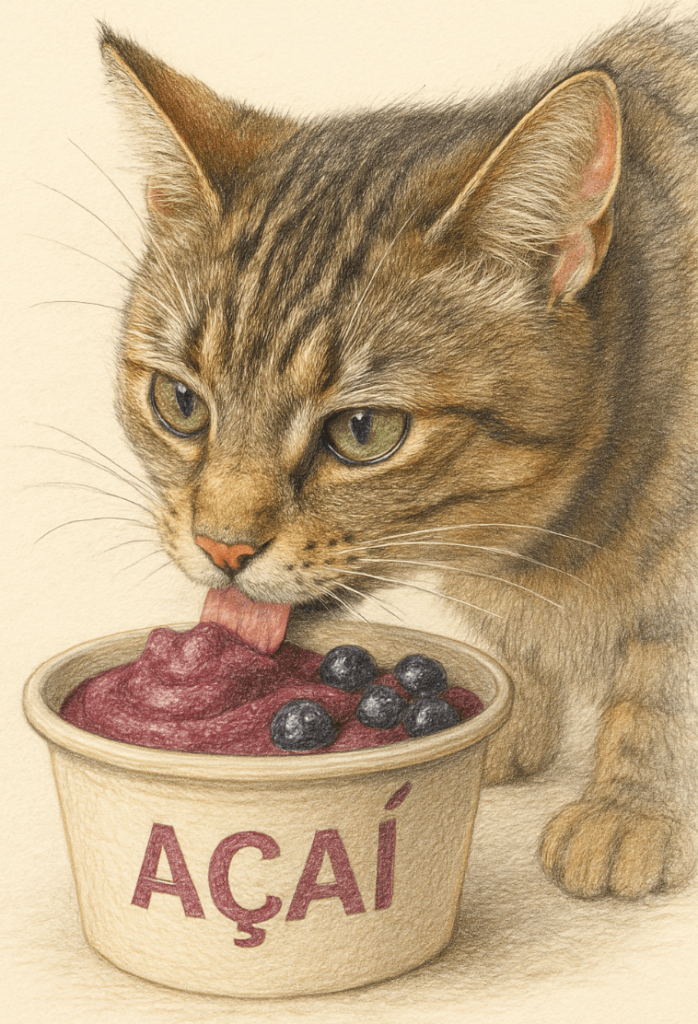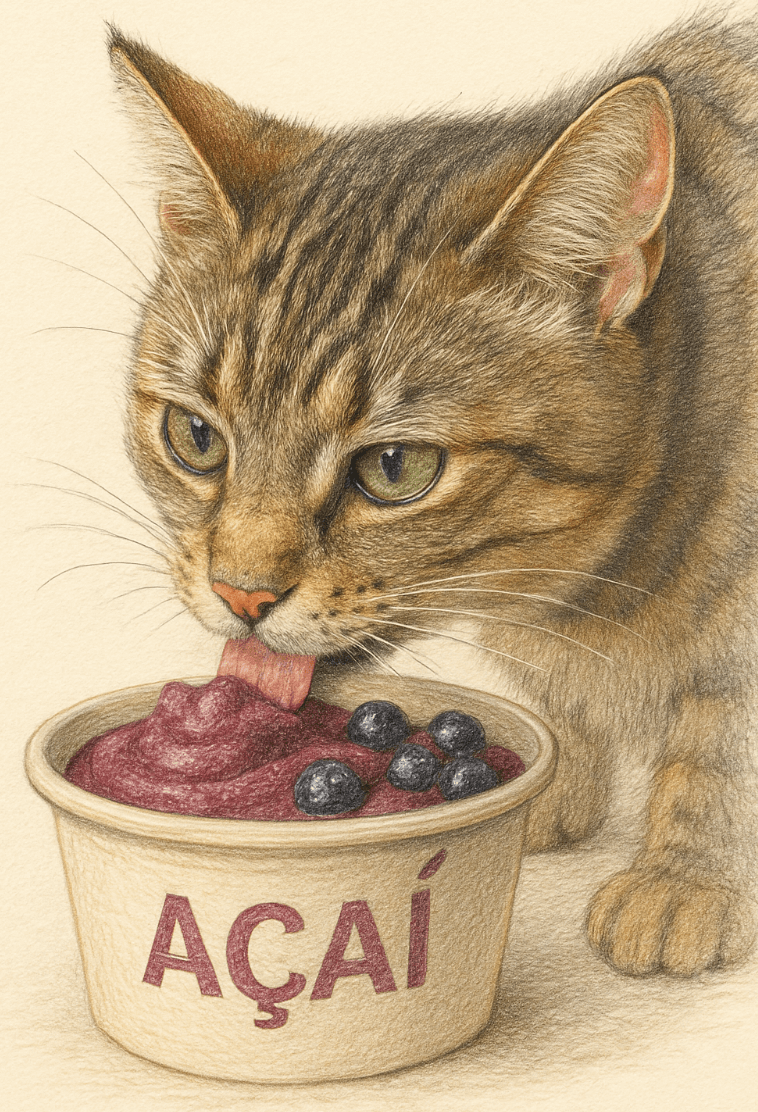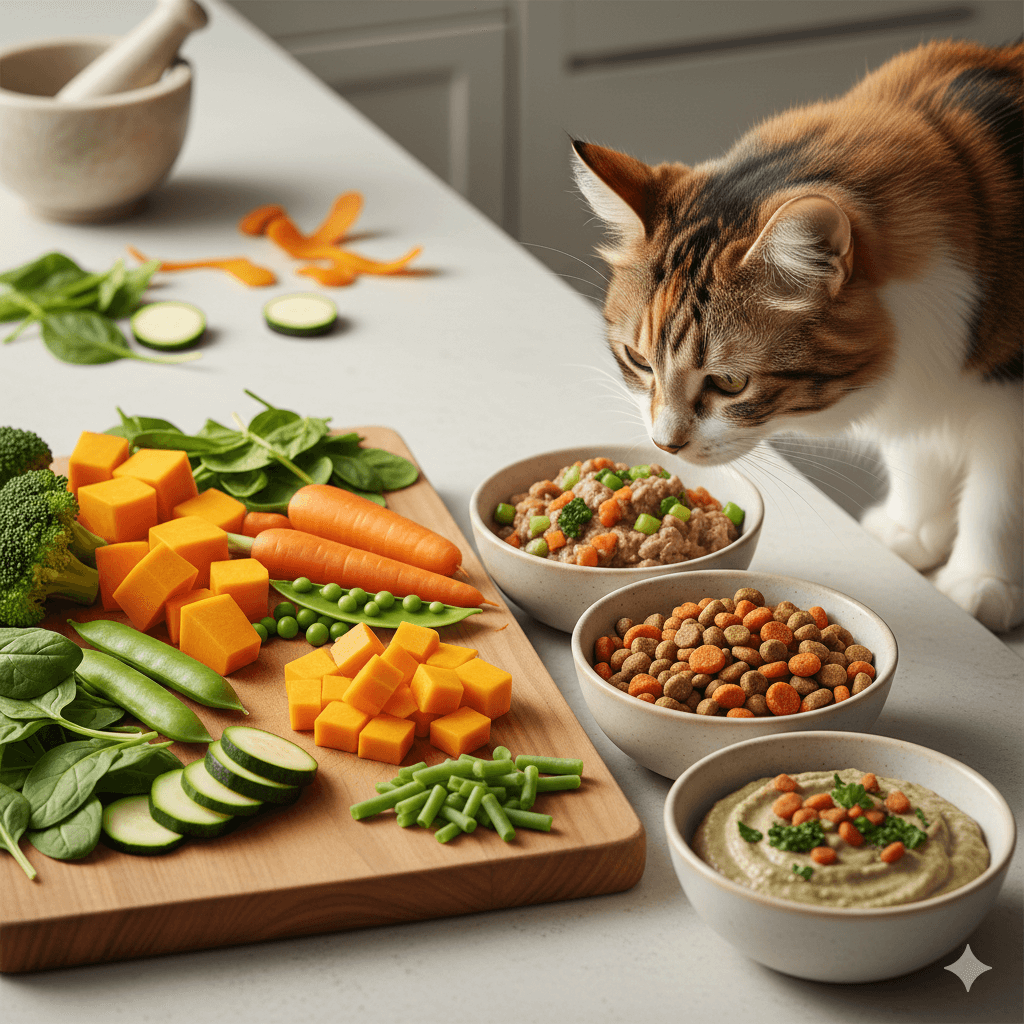Can Cats Eat Acai?
The acai berry has gained immense popularity in recent years as a superfood packed with antioxidants, vitamins, and nutrients. While it’s a favorite among health-conscious humans, many cat owners wonder if this trendy fruit is safe for their feline companions. Cats have unique dietary needs and sensitivities, so it’s essential to approach any new food with caution. In this blog post, we’ll explore whether cats can safely consume acai, its potential benefits and risks, and how to introduce it responsibly into your cat’s diet. By the end, you’ll have all the information you need to make an informed decision about sharing this superfood with your furry friend.
Potential Benefits of Acai for Cats
While cats are obligate carnivores and derive most of their nutrition from animal-based proteins, certain plant-based foods like acai may offer limited benefits when introduced carefully. Here’s what acai might contribute to your cat’s health.
Rich in Antioxidants:
Acai berries are loaded with antioxidants, which can help combat oxidative stress and support overall immune function.Anti-Inflammatory Properties:
The anti-inflammatory compounds in acai may aid in reducing inflammation, particularly in older cats with joint issues.Hydration Support:
When mixed with water or blended into a puree, acai can provide a hydrating boost for cats who struggle to drink enough water.Digestive Health:
Acai contains fiber, which may promote healthy digestion and regulate bowel movements when given in moderation.Low in Calories:
As a low-calorie treat, acai is unlikely to contribute to weight gain if fed sparingly.
While these benefits are promising, it’s important to remember that cats don’t require fruits in their diet, and acai should only be offered as an occasional treat.
Risks of Feeding Acai to Cats
Despite its nutritional value, acai isn’t without risks when it comes to feline consumption. Understanding these potential dangers will help you decide whether it’s worth introducing to your cat’s diet.
High Sugar Content:
Acai contains natural sugars, which can upset your cat’s digestive system or lead to obesity if consumed excessively.Allergic Reactions:
Some cats may develop allergic reactions, such as itching, swelling, or gastrointestinal upset, after consuming acai.Choking Hazard:
Whole acai berries or large chunks pose a choking risk, especially for smaller cats or those prone to gulping food.Pesticide Exposure:
Non-organic acai may contain harmful pesticides or chemicals that could harm your cat if ingested.Interaction with Medications:
Certain compounds in acai may interfere with medications your cat is taking, so consult your vet before offering it.
These risks highlight the importance of moderation and professional guidance when feeding acai to your cat.
Check this guide 👉Can Cats Eat Brisket? Best 7 Expert Tips!
Check this guide 👉Can Cats Eat Lychee? Best 7 Expert Tips!
Check this guide 👉Can Cats Eat Granola? Best 7 Expert Tips!

Safe Ways to Offer Acai to Cats | What to Avoid When Feeding Acai |
|---|---|
Blend into a small amount of puree | Offering whole berries or large chunks |
Mix with water for hydration | Adding sugar or sweeteners |
Use organic, pesticide-free acai | Overfeeding or making it a daily treat |
Start with tiny portions | Giving to cats with known allergies |
Consult your vet beforehand | Ignoring signs of digestive upset |
How to Safely Introduce Acai to Your Cat
If you’ve decided to try acai with your cat, it’s crucial to do so gradually and responsibly. Follow these steps to ensure a safe introduction.
Start Small:
Begin with a tiny amount, such as a teaspoon of pureed acai, to monitor your cat’s reaction.Check for Allergies:
Watch for signs of allergies, including itching, vomiting, or diarrhea, within 24 hours of feeding.Blend It Smoothly:
Puree the acai to avoid choking hazards and make it easier for your cat to consume.Avoid Additives:
Ensure the acai is free from added sugars, preservatives, or artificial flavors, which can harm your cat.Consult Your Veterinarian:
Always seek professional advice before introducing new foods, especially if your cat has underlying health conditions.
By following these guidelines, you can minimize risks while exploring whether acai suits your cat.
Signs Your Cat May Not Tolerate Acai
Not all cats will react well to acai, and some may experience adverse effects. Recognizing these signs early can prevent further complications.
Vomiting or Diarrhea:
These symptoms indicate digestive distress and suggest your cat cannot tolerate acai.Loss of Appetite:
If your cat refuses to eat after trying acai, it could signal discomfort or illness.Excessive Licking or Scratching:
This behavior may point to an allergic reaction or irritation caused by the fruit.Lethargy or Weakness:
Sudden changes in energy levels could indicate poisoning or an adverse reaction.Swelling or Breathing Issues:
Severe swelling around the face or difficulty breathing requires immediate veterinary attention.
Recognizing these warning signs allows you to act quickly and protect your cat’s health.
Common Mistakes to Avoid When Feeding Acai to Cats
Feeding acai to your cat requires careful consideration to avoid mistakes that could harm their health. Here are some pitfalls to watch out for.
Overfeeding Acai:
Even small amounts can upset your cat’s stomach if given too frequently. Stick to occasional treats.Using Sweetened Products:
Many commercial acai products contain added sugars, which are harmful to cats. Always choose plain, unsweetened options.Ignoring Allergy Signs:
Failing to recognize allergic reactions can lead to more serious health issues. Be vigilant about monitoring your cat.Skipping Veterinary Advice:
Assuming acai is safe without consulting your vet can result in unintended consequences. Always seek professional input.Offering Large Pieces:
Whole berries or chunks pose a choking hazard and should be avoided entirely.
Avoiding these mistakes ensures a safer and healthier experience for your cat.
Alternative Treats for Cats That Love Fruits
If acai isn’t suitable for your cat, there are plenty of other safe and nutritious fruit options to try. Here are some alternatives that cats often enjoy.
Blueberries:
Packed with antioxidants, blueberries make a safe and tasty treat when offered in moderation.Watermelon (Seedless):
Hydrating and refreshing, seedless watermelon can be a fun summer snack for cats.Apples (No Seeds):
Apples provide fiber and vitamin C, but always remove seeds and core before serving.Bananas (In Small Amounts):
Bananas are high in potassium and magnesium, but their sugar content means they should be given sparingly.Strawberries:
Rich in vitamin C and fiber, strawberries are a sweet and safe option for most cats.
These alternatives allow you to experiment with safe fruits while keeping your cat’s diet varied and enjoyable.
Understanding Your Cat’s Unique Dietary Needs
Cats have specific dietary requirements that differ significantly from humans and even dogs. Understanding these needs helps you make better choices about their nutrition.
Obligate Carnivores:
Cats rely on animal-based proteins for essential amino acids like taurine, which they cannot synthesize themselves.Limited Fruit Digestion:
Cats lack the enzymes needed to break down large amounts of fruit, making it a poor staple in their diet.Hydration is Key:
Many cats struggle to stay hydrated, so incorporating moisture-rich foods can benefit their overall health.Sensitivity to Sugar:
High sugar intake can lead to obesity, diabetes, and dental issues, so sugary foods should be avoided.Individual Preferences:
Every cat is different—what works for one may not work for another, so observe your cat’s reactions closely.
By respecting your cat’s unique biology and preferences, you can provide a balanced and satisfying diet tailored to their needs.
Frequently Asked Questions About Cats and Acai
Is acai toxic to cats?
No, acai is not inherently toxic, but it can cause digestive upset or allergic reactions in some cats.
How much acai can I give my cat?
Limit acai to a teaspoon or less, and only offer it occasionally as a treat.
Can kittens eat acai?
Kittens have sensitive digestive systems, so it’s best to avoid giving them acai altogether.
Should I use fresh or frozen acai?
Both are safe as long as they’re organic and free from additives; frozen acai is often more convenient.
What should I do if my cat accidentally eats a lot of acai?
Monitor for symptoms of distress and contact your veterinarian immediately if any concerns arise.
Making Informed Choices About Acai for Your Cat
While acai offers certain health benefits, it’s not a necessary addition to your cat’s diet. Obligate carnivores thrive on animal-based proteins, and introducing plant-based foods like acai should always be done cautiously. By understanding the potential risks and benefits, consulting your veterinarian, and introducing acai responsibly, you can ensure your cat’s safety and well-being. Remember, the key is moderation—your cat doesn’t need trendy superfoods to live a happy, healthy life.
Can a Cat Be Tested for Rabies? Best 7 Expert Tips! – Learn if testing is possible, understand the process, and discover prevention tips to keep your cat safe from rabies.
Can a Dog Be Tested for Rabies? Best 7 Expert Tips! – Learn how rabies testing works, why it’s critical, and what every dog owner needs to know.
Best Vegetables for Cat Food: Best 7 Expert Tips! – Discover safe, nutritious veggies to boost your cat’s diet, support digestion, and enhance overall health naturally.
Best Vegetables for Dog Food: Best 7 Expert Tips! – Discover safe, nutritious veggies to boost your dog’s diet, support digestion, and enhance overall health naturally.





